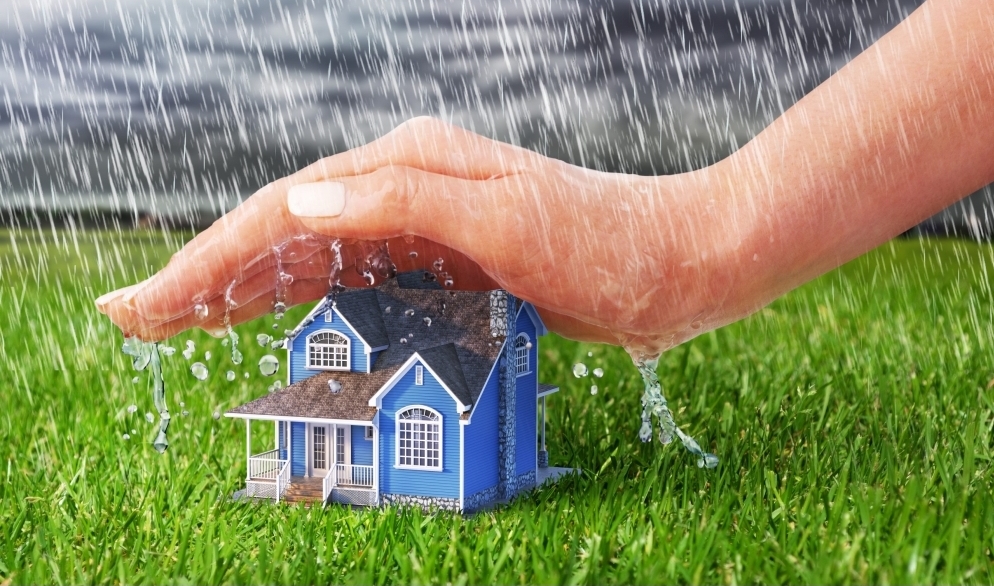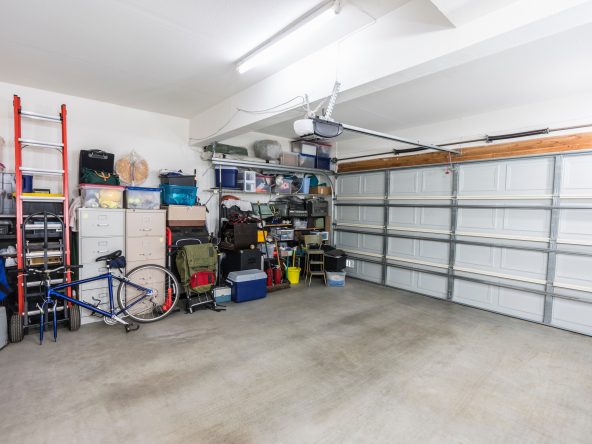You Ask, We Answer: How Can I Protect My Home From Heavy Rains?
You’ve probably noticed that our rain storms in Connecticut have become more powerful, dumping a large amount of rain in a short amount of time–and that can lead to flash floods, leaky basements, and water damage in your home. As we head into autumn with indicators pointing to a strong season for hurricanes and tropical storms, we here at Calcagni Real Estate are thinking about what we can do to mitigate the deluges we may face in the coming months. Read on for our compiled list of ways you can protect your Connecticut home from heavy rains and water damage.
Double check your window air conditioning units
We may not always think about our window air conditioning units as a source of vulnerability when it rains, but cracks in the caulking, gaps in weatherstripping, slow drainage or the angle of the unit itself can all result in water getting into your home during heavy rain storms.
If you don’t have it already, be sure to add weatherstripping between the air conditioning unit and the sleeve. Double check the sleeve for any cracks or gaps, and caulk them accordingly. Lastly, tilting the unit toward the exterior wall–even by just a couple degrees–can make a big difference in how water rolls off the unit and how well it drains.
Clear your gutters of debris
It seems like Home Protection 101, but it bears repeating: Clear gutters go a long way to helping protect your home from heavy rains and the damage they can cause. Gutters provide crucial drainage that carries water away from our roofs and directs water away from the foundation of your home, which might otherwise cause leaks in your home and risk the growth of mold–and mold can lead to serious health concerns. If you notice black grit in your gutters while cleaning them out, take note: this can be a sign that your roof shingles are beginning to see better days, and you’ll want to contact a professional roofer to come take a look.
Be sure to clear your gutters from leaves and other debris that may have gathered over the summer. To keep them clear throughout the year, consider installing gutter guards to protect from debris gathering and clogging gutters.
Have your roof inspected
One of the most frustrating realizations of homeownership can be when you discover, in the middle of a heavy downpour, that your roof is leaking. Whether you see water stains on your ceiling or hear the telltale “drip drip drip” of water entering your home from above, you know you’ve got a problem that you can’t ignore.
If you are not well-versed in roof repair, or you don’t feel comfortable getting up on the roof yourself, consider hiring a professional roofer to come inspect your roof and repair it as necessary. You want to make sure there are no missing or cracked shingles, as this can lead to serious damage during heavy rains in the future. In addition, you want to remove any moss that is growing on your roof; this can lead to dry rot down the road. (Scrubbing it off with a soft-bristle brush is a relatively easy and affordable solution.)
Next, be sure to check the flashing on your roof. Flashing is usually made of thin metal and keeps water from entering openings in your roof. Be sure to repair any loose or missing flashing to extend the life of your roof and prevent leaks during heavy rains.
Ensure your sump pump is working correctly
Do you have a sump pump in your Connecticut home? Excellent! But your sump pump needs to be checked regularly (annually at the very least) to ensure it’s working correctly so if you do encounter water in your home, it can turn on and work to its full potential. While you can clean your sump pump yourself, it’s best to have a professional come and service it. They can run tests, clean it, and make adjustments as necessary to ensure it will click on during heavy rains.
Check your chimney
Just as your sump pump should be inspected by a professional, so should your chimney. Water from heavy rains can find its way into any gaps or cracks in your chimney, and mold can begin to grow on bricks that aren’t waterproofed–not a good scenario for any homeowner.
Have your chimney inspected by a professional and ask them about installing a chimney cap before hurricane season arrives in Connecticut. If your chimney bricks aren’t yet waterproofed, consider inquiring about that, as well. These steps can make a big difference in keeping your home safe from leaks during–and after–heavy rains.
Elevate critical appliances
Protect your Connecticut home from heavy rain storms by elevating critical electrical appliances like hot water heaters and furnaces, which are often located in the basement. You can put them on even surfaces like 12” masonry blocks or concrete slabs to ensure that if water does get into your basement, you’ll protect them from damage. If you also have your washer and dryer in the basement, you’ll want to elevate them, as well.
Finally, take the time to speak to your local electrician about where your switches, sockets and circuit breakers are located. You want to ensure they’re at least 12” above the flood line; if they’re not, have your professional electrician rewire them so they’ll be safe if water from heavy rains seeps into your Connecticut home.
As always, if you need recommendations for who to call to help keep your Connecticut home safe from heavy rains, contact your local Calcagni Real Estate agent. With over 50 years as Connecticut’s leading independently owned real estate company, we’ve made many long-standing relationships with quality local vendors who can help you protect your home from heavy rains and more!




